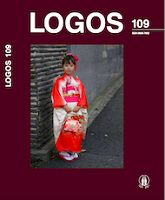Derridean "Zone Without Belonging" and Literary Ambience
Derridean "Zone Without Belonging" and Literary Ambience
Author(s): Basia NikiforovaSubject(s): Epistemology, Semiology, Philosophy of Language
Published by: Visuomeninė organizacija »LOGOS«
Keywords: Monolingualism; language of the other; linguistic hybridization; nostalgia; postcolonialism;
Summary/Abstract: The question about belonging to a linguistic group is an important source of Derrida’s identity. Derrida understood language as the heart of identity construction. Thinking about his own life, he analyses such notions as maternal language, mother tongue, the language of the other. The article analyzes the emotions of alienation, exile, and nostalgia highlighted by Derrida. They haunted him while he contemplated on the language. The expressions of “hiding the inner”, trauma and secret were also important for him. The colonial and post-colonial experience that placed his cultural identities under severe threat gave rise to defense mechanisms that try to defend him against a repetition of this traumatic past. This article considers such works of Derrida as Monolingualism of the Other or the Prosthesis of Origin (1998), How to Avoid Speaking: Denials (2008), Acts of Literature (1992), and others. As a result, Derrida's multiple identities that were developing during his life create a paradigmatic situation: he feels that the language is more influential for him. “I have only one language and it is not mine “. For different reasons, these words as a prayer were often reiterated by those who experienced emigration and alienation from their native language. Many European writers and poets have experienced the same situation with “language as a zone without belonging”. For this reason, attention is also drawn to other famous writers - Paul Celan and Ingeborg Bachmann.
Journal: LOGOS - A Journal of Religion, Philosophy, Comparative Cultural Studies and Art
- Issue Year: 2021
- Issue No: 109
- Page Range: 78-88
- Page Count: 11
- Language: Estonian

